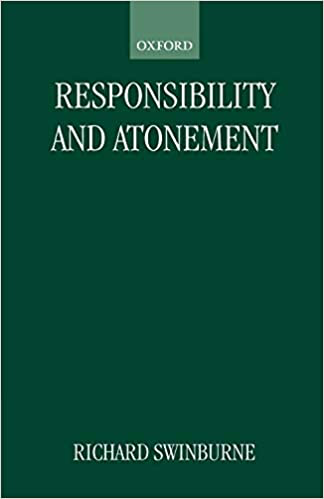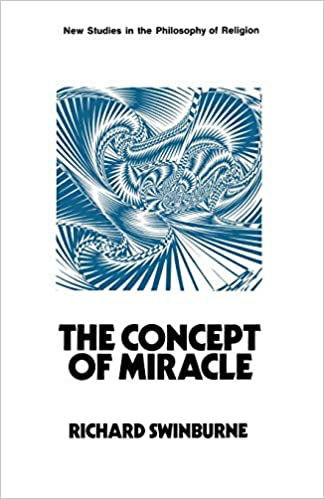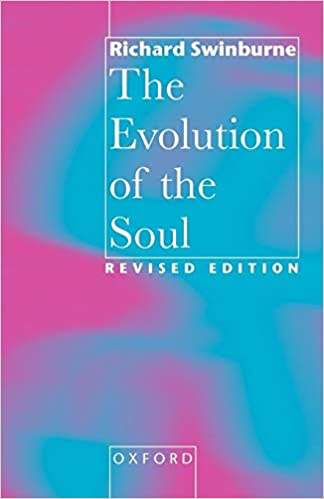Philosophy of Souls and Other Religious Ideas

Interview by Richard Marshall

'I greatly welcome the “metaphysical turn”. Unlike the metaphysical philosophy of continental Europe, it has tried to build a philosophy based on the latest empirical science. This has been a move with which I am totally sympathetic.'
'I argue that a future person being me consists in that future person having experiences which I will experience; and so the identity of me does not consist in what happens to my body, but in what happens to my conscious life, and so I am who I am in virtue of what happens to my conscious life. Nothing that happens in my body entails or is entailed by what happens to my conscious life. So being me must consist in being a substance separate from my body.'
'I think there are many distorting influences on the debate about the truth of religion, both in USA and everywhere else in the world – as there always are influences which distort serious discussion of matters which directly or indirectly affect our personal lives.'

Richard Swinburne is a leading philosopher of religion. Here he discusses changes in analytic philosophy, necessity in the philosophy of religion, creedal sentences, analogy in religious language, disembodiment, the problem of evil, freewill, the necessity and contingency of God, whether we're bodies or souls, personal identity, epiphenomenalism, and taking objections seriously.
3:16: What made you become a philosopher?
Richard Swinburne: I studied "philosophy, politics, and economics" for my undergraduate degree at Oxford (in 1954-7), primarily out of an interest in politics and economics, but I soon became interested in philosophy. I had a natural deep interest in big metaphysical questions. Also, I was and am a Christian believer, and I came to think that although the then current philosophy as taught Oxford was unsympathetic to religion, nevertheless it had tools which I was beginning to learn, which could be used in defence of religion. I came to think that I might be able to use them in this way; And so I took a graduate degree in philosophy and became a philosopher. I was planning to become a priest; and being conscious of the fact that the secular world was coming to believe that there is no God, I came to think that I could combine a vocation to the priesthood with becoming a philosopher who could write in defence of religion. But it then became obvious to me that I could not combine these two activities, and so I became a fully professional philosopher.
3:16: You’re a philosopher within the analytic tradition of philosophy, and during your time of working this is a tradition that has changed quite a bit. During your time working what do you think are the biggest changes that you have seen within this philosophical community and are there things you now value in the contemporary scene that hasn’t always been present – and are there changes you regret?
RS: The philosophy taught at Oxford in my student days was "ordinary language" philosophy, totally dominant at Oxford and prevalent throughout the Anglophone world. The task of philosophy was considered to be to analyse how words prominent in philosophical arguments in the past, such as "know", "free", and "mind" are used in ordinary language; and thereby to show that many philosophical controversies of the past arose from a misuse of these words and could be seen to be meaningless when we understood that ordinary use. Thus, the claim was that when we understand how the word "free" is used in ordinary language, as when we say "you are free to look lead the room", then there is no real problem of "free will".
“Metaphysical" was a dirty word, in the sense that when you could show that some position was metaphysical, that was enough to dismiss it. My instinct was that this view was totally mistaken, and that there are real big metaphysical problems. The first sign of a change in the philosophical atmosphere was the publication in 1959 of P.F. Strawson's book Individuals, the subtitle of which was "An essay in descriptive metaphysics"; that book distinguished descriptive metaphysics from revisionary metaphysics, and claimed that they were both worthwhile activities. I was privileged to hear the lectures which formed the basis of that book. The next twenty years saw the full "metaphysical turn" of analytic philosophy, the leading names of which are very familiar to us today – Quine, Kripke, Putnam, and Lewis. However, I do regret the lack of sensitivity of current metaphysical philosophy to the meanings of ordinary words, to which “ordinary language philosophy” drew our attention – because, when we use these words (and we have no others from which to start) we may need to use them in unusual senses, and it is important to relate those unusual senses to the normal senses if the new senses are to be clear ones.
Nevertheless, with this qualification, I greatly welcome the “metaphysical turn”. Unlike the metaphysical philosophy of continental Europe, it has tried to build a philosophy based on the latest empirical science. This has been a move with which I am totally sympathetic. In the contemporary world outside philosophy, science is regarded as the paradigm source of knowledge. but I regret the extreme deference shown by contemporary philosophers to the statements of scientists, when the scientists tread on metaphysical ground. We should believe what the scientists say about whether their theories give good predictions and provide simple explanations of data, but we should raise questions when their big descriptions of what the world is like and what are the general criteria for what is evidence for what seem to go far beyond that.
Here is a simple example to illustrate my point. Einstein's Special Theory of Relativity showed that light is the fastest signal between two points, and that the two-way velocity of light (that is its average velocity from A to B and back again) is the same in every inertial frame. It is a consequence of this that if you measure the temporal interval between two events A and B which are at a spatial distance from each other by sending a light signal from A to B and back again and assume that its one way velocity is the same as its two-way velocity, you get a different result according to which inertial frame is the frame in which you measure the spatial distance between them. Hence they may be simultaneous with each other as measured in one frame of reference, but A may be earlier than B as measured in another frame, and later as measured in yet in another frame. Such are the scientific results.
But Einstein, being much influenced by a positivistic view of science according to which if physics does not allow you to detect a difference between two states of affairs they really are the same state, concluded that in the real world there is no such thing as one event being absolutely simultaneous with a spatially distant event B, only "simultaneous in frame X" and "not simultaneous in frame Y". And most philosophers believe that, just because Einstein said it, forgetting that Einstein was influenced by a certain philosophical theory which is open to very serious philosophical criticism. Maybe there are truths about which events are simultaneous with each other which cannot be detected by non-omniscient humans. That's not to say that Einstein's philosophical conclusion is necessarily false; only that philosophers need to be clear about when a crucial philosophical criterion has been taken for granted by a scientist.
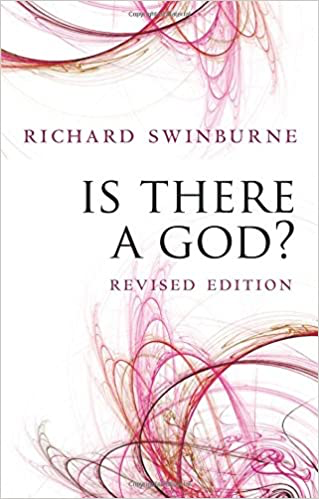
3:16: You’re a leading philosopher of religion. Metaphysics and logic are key tools in your approach and although you have a religious prism through which you filter contemporary philosophical debates you’re very much a hard core analytic philosophy aren’t you. Necessity is important to understand your arguments and the distinction and relationship between metaphysical and logical necessity. So first can you set out what you think the relationship is between these types of necessity and how they help your argument for the coherence of theism – and say what you take ‘theism’ to be – and are your arguments relevant only for Christian theism or would it capture the theism of any religion with a God in it?
RS: A logically impossible sentence is one that entails a contradiction; a logically possible sentence is one that does not entail a contradiction, and a logically necessary sentence is one whose negation entails a contradiction. A metaphysically impossible/possible/necessary sentence is one which, if you substitute informative designators of the referring terms contained in the sentence for their uninformative designators, reduces to a logically impossible/possible/necessary sentence. A proposition is what is expressed by a sentence, and has the same modality (possible, or whatever) as that sentence. An informative designator is one such that if you know what it means, you know to what it refers. Thus, most simple words learnt by children such as “face”, or “mouth” are informative designators, whereas words (or longer expressions) which identify things by definite descriptions of them, such as “the man I saw yesterday” are uninformative designators. I take “theism” to be the doctrine that there is a God, in the sense of a being with most of the following properties: being a person without a body, present everywhere (that is, omnipresent), the creator of the universe, perfectly free, able to do anything (that is, omnipotent) knowing all things (that is, omniscient), perfectly good, a source of moral obligation, eternal, a necessary being, holy, and worthy of worship.
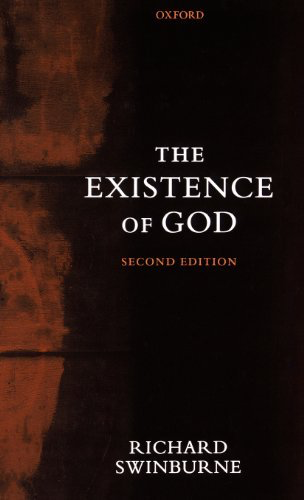
My arguments for the existence of God are thus arguments for a being who has most of the above properties; and some of my arguments are designed to show just which of those properties God has (and to show in more detail how those properties are to be understood). Although I use the distinction between metaphysical and logical modality at various places in the course of spelling out in more detail the nature of the Christian God, the most obvious place where I use it is to argue that in that sense of “metaphysically necessary”, God is not a metaphysically necessary being (because in my view it is not metaphysically possible that there is a metaphysically necessary being (=substance); metaphysical necessity belongs only to substances having certain properties, or doing certain things).
I claim, however, that God is a “necessary being” at least in the sense that he is of metaphysical necessity uncaused, but maybe ontologically necessary in a deeper sense than the sense of metaphysical necessity, which I have just described
3:16: Why do you think that creedal sentences express propositions rather than merely express an intention to live in a certain way as some Wittgensteinian philosophers have argued at times?
RS: It seems to me obvious that such sentences have normally been used by Christians over the past 2000 years to express propositions. Wittgensteinian philosophers wish to use.these sentences in order to express intentions, but they need to recognise that this is a big innovation, and they are not analysing the language use of traditional Christianity.

3:16: What’s the role of analogical language in theism?
RS: Humans cannot fully understand the nature of God, and so they have to use words whose normal meaning they understand, but which are not fully satisfactory for describing that nature. So there is a sense in which God is a “person”, that he has beliefs, thoughts and other conscious events; but also a sense in which God is not a person, in that his identity is constituted by his properties – such as omnipotence and perfect goodness, whereas the identity of all other persons is independent of the degree of their power and the morality of their actions.
Physicists also have to use words which are not fully satisfactory for describing the entities which they postulate – for example, there is a sense in which light consists of “particles”, and a sense in which it does not, but behaves like a wave.
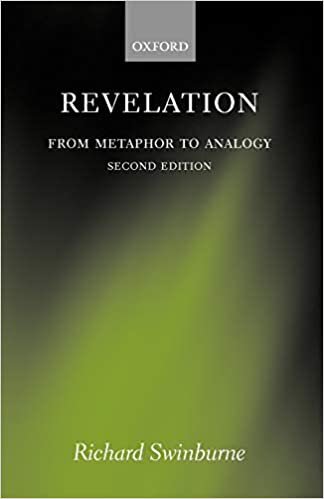
3:16: If God is disembodied then is it coherent to claim that he is omnipresent – after all, there’s a place where he’s not, and that’s anywhere that’s embodied?
RS: Places are not embodied; only substances which occupy places are embodied. God is omnipresent in the sense that he is present everywhere by his knowledge and activity –he knows what is happening everywhere (directly, not via a long causal chain) and can act everywhere directly (that is, as a basic action)
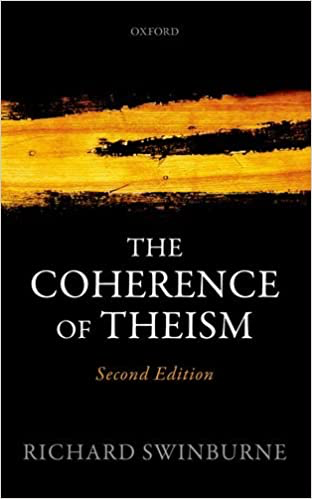
3:16: How do you argue against those who find the existence of evil an incoherent phenomenon in a world created by an all powerful, all knowing and good God? Does your argument require us to have freewill – which takes you into the territory of lively contemporary dispute within a largely secular philosophical community doesn’t it?
RS: Yes, my defence does require us to have free will, and I have written arguments of a purely philosophy of mind kind in defence of that. But not all evil is due to human free will. God wants us to form our characters by our own free choices of how we deal with difficult circumstances; and the suffering caused by disease and suchlike gives us that opportunity.
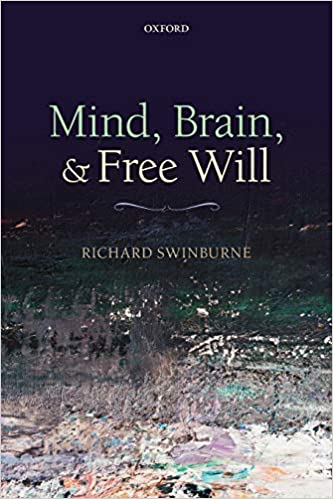
3:16: Do you think the arguments for the necessity of God more convincing than those for a contingent God?
RS: All depends on the senses of “necessary” and “contingent”. As I said in my answer to an earlier question, I do not think that God can be a metaphysically necessary being in the sense described there, and so I find the arguments for that totally unconvincing. I do think that God is metaphysically contingent, and I find the arguments for that far more convincing. But those arguments point towards God being ontologically necessary in a deep sense.
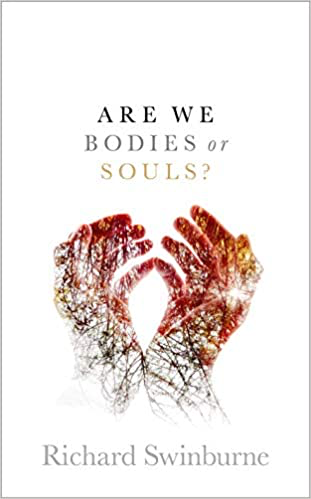
3:16: Your latest book asks whether we are bodies or souls and so engage with a very lively current debate within naturalism between substance monists and dualists – the Dennett clan on the one side and the Chalmer clan on the other! –but from a theistic perspective. To the Cartesian it always seemed that it was the body that needed justifying rather than minds or souls but these days the body seems to be taken for granted ( Searle’s comment ‘materialism is the religion of today’) and the problem is how minds fit in with a universe of just bodies. How do you characterize this lively contemporary debate – I take it that broadly speaking you think Descartes got things right?
RS: Yes, I do think that broadly speaking Descartes got things right. That is what I have argued in Are We Bodies or Souls?
3:16: You defend substance dualism but do so whilst standing by what current science is telling us about the mind and so forth. Can you sketch for us what you argue – and also say why ‘soul’ isn’t the same as ‘mind’ in your ontology?
RS: The word “mind” is used in various sentences which merge into each other, and for that reason, I avoid it. I use “soul” in Plato’s and Descartes’s sense of an immaterial substance which is the essential part of each of us, while our bodies are the non—essential part of each of us. I argue that a future person being me consists in that future person having experiences which I will experience; and so the identity of me does not consist in what happens to my body, but in what happens to my conscious life, and so I am who I am in virtue of what happens to my conscious life. Nothing that happens in my body entails or is entailed by what happens to my conscious life. So being me must consist in being a substance separate from my body. But that’s far too short to be totally convincing, and you’ll have to read the book to get a thorough answer.

3:16: How does your approach help understand personal identity and the questions that arise when we consider brain damage and aging and whether I can be the same person as the child or the very old person who is (barring unfortunate events) coming afterwards?
RS: It is my soul which constitutes me. But my soul is sustained in existence by my brain (at least during my earthly life); and my brain largely determines which properties my soul has at any time. Hence my childhood interactions with the world form my childhood brain which forms my childhood outlook on the world; and my old age interactions with the world form my old age brain, which in turn forms my old age outlook on the world.
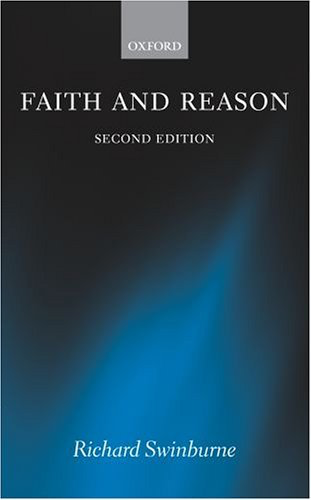
3:16: From your position could we exist with just a soul and no body at all and not just logically but from what is known about the world via natural science?
RS: Logically, certainly. But we do not know what natural laws, if any, determine or forbid the existence of a human soul without a body. But, given that there is a God, God can certainly keep the soul in existence without a body, and in due course give it a new body – if he so chooses (and if this involves God suspending natural laws, then God can certainly do that)
3:16: How do you avoid epiphenomenalism ie the view that the soul has no causal effect on the brain, and vice versa – do laws of nature connect them in the right way and do neuro-scientists, physicists etc know these laws ?
RS: Epiphenomenalism, which I understand more precisely as the view that brain events cause conscious events, but conscious events never cause brain events, is self-defeating. We could only know about our own past life if that conscious life caused effects in our brains which cause our subsequent memories of it; and we could only know about the conscious lives of others, if their conscious lives cause their testimony to it. So if epiphenomenalism were true, we could never have any grounds for believing that we have a conscious life (beyond the present moment) and so we could have no grounds for believing that epiphenomenalism was true.
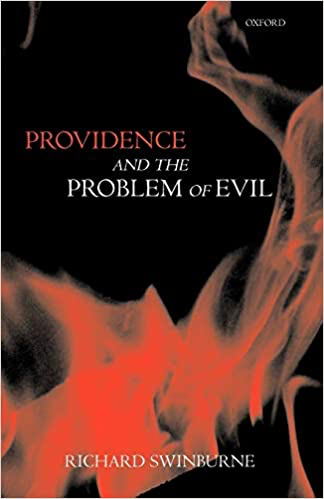
3:16: Some philosophers have argued that the problem with philosophy of religion is that it usually sets out to show that a certain religious position is defensible but ignores anything that would make it unlikely to be true. Even though coherent, they argue, theism isn’t true in this world. How do you push back against this sort of argument? Much of the recent discussions between those for and against religious belief has been very intemperate – do you think that the American context is distorting this debate because of the political activism of the Christians in the USA which seems much more important to politics than Christianity elsewhere?
3:16: I believe that I take seriously objections to my religious position, and put forward counter-objections to those objections. Two chapters of my central book.The existence of God are devoted to the objection from evil, and I have written another whole book about that topic – Providence and the Problem of Evil. I think there are many distorting influences on the debate about the truth of religion, both in USA and everywhere else in the world – as there always are influences which distort serious discussion of matters which directly or indirectly affect our personal lives
3:16: As an option I’m asking interviewees to give one word answers to the following survey – you may add comments to any answer you want to explain if you want
RS: Ok.
:a. A priori knowledge: yes or no? YES
b. Abstract objects: Platonism or nominalism? NOMINALISM
c. Aesthetic value: objective or subjective? I HAVEN'T THOUGHT ENOUGH ABOUT IT
d. Analytic-synthetic distinction: yes or no? YES
e. Epistemic justification: internalism or externalism? INTERNALISM
f. External world: idealism, skepticism, or non-skeptical realism? NON--SCEPTICAL REALISM
g. Free will: compatibilism, libertarianism, or no free will? LIBERTARIANISM
h. God: theism or atheism? THEISM
i. Knowledge claims: contextualism, relativism, or invariantism? SOME OF EACH
j. Knowledge: empiricism or rationalism? BOTH
k. Laws of nature: Humean or non-Humean? NON--HUMEAN
l. Logic: classical or non-classical? VARIES WITH CONTEXT
m. Mental content: internalism or externalism? INTERNALISM
n. Meta-ethics: moral realism or moral anti-realism? MORAL REALISM
o. Metaphilosophy: naturalism or non-naturalism? NON-NATURALISM
p. Mind: physicalism or non-physicalism? NON-PHYSICALISM
q. Moral judgment: cognitivism or non-cognitivism? COGNITIVISM
r. Moral motivation: internalism or externalism? INTERNALISM
s. Newcomb's problem: one box or two boxes? NEED TO THINK ABOUT IT MORE
t. Normative ethics: deontology, consequentialism, or virtue ethics? DEONTOLOGY
u.Perceptual experience: disjunctivism, qualia theory, QUALIA THEORY
v. representationalism, or sense-datum theory? BOTH
w. Personal identity: biological view, psychological view, or further-fact view? FURTHER-FACT VIEW
x. Politics: communitarianism, egalitarianism, or libertarianism? SOME OF EACH
y. Proper names: Fregean or Millian? FREGEAN
z. Science: scientific realism or scientific anti-realism? SCIENTIFIC REALISMA
i. Teletransporter (new matter): survival or death? DEATHA
ii. Time: A-theory or B-theory? A-THEORYA
iii Trolley problem (five straight ahead, one on side track, turn requires switching, what ought one do?): switch or don't switch? DEPENDS ON CONTEXTA
iv. Truth: correspondence, deflationary, or epistemic? DEFLATIONARY
v. Zombies: inconceivable, conceivable but not metaphysically possible, or metaphysically possible? CONCEIVABLE AND METAPHYSICALLY POSSIBLE
3:16: And finally, for the curious readers here at 3:16, are there five books, other than your own, that would help take us further into your philosophical world?
RS: There are some good introductions to contemporary philosophy of religion.
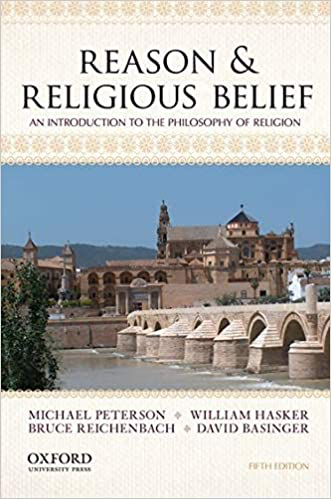
One which covers most of the central topics and describes the different views advocated is M.Peterson and others, Reason and Religious Belief, fifth edition, 2013 (there is probably a later addition by now.)
Further books by Richard Swinburne:
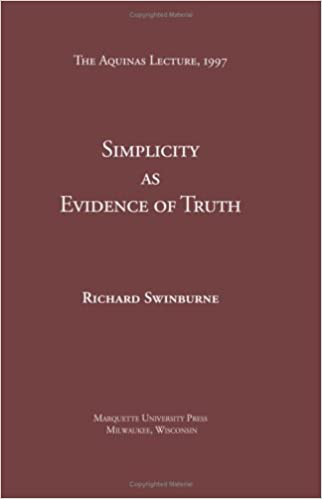 Simplicity as Evidence of Truth
Simplicity as Evidence of Truth
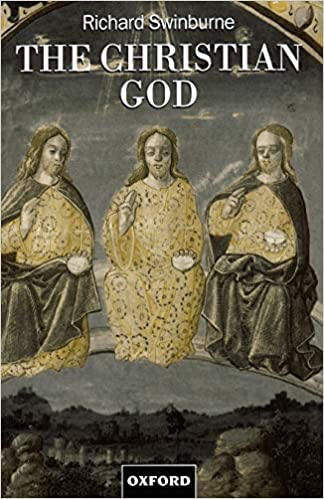
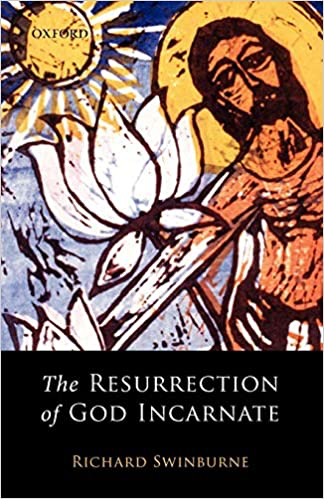
The Resurrection of God Incarnate


ABOUT THE INTERVIEWER
Richard Marshall is biding his time.
Buy his second book here or his first book here to keep him biding!
End Times Series: the index of interviewees
End Time series: the themes
Huw Price's Flickering Shadows series.
NEW: Steven DeLay's Finding meaning series
